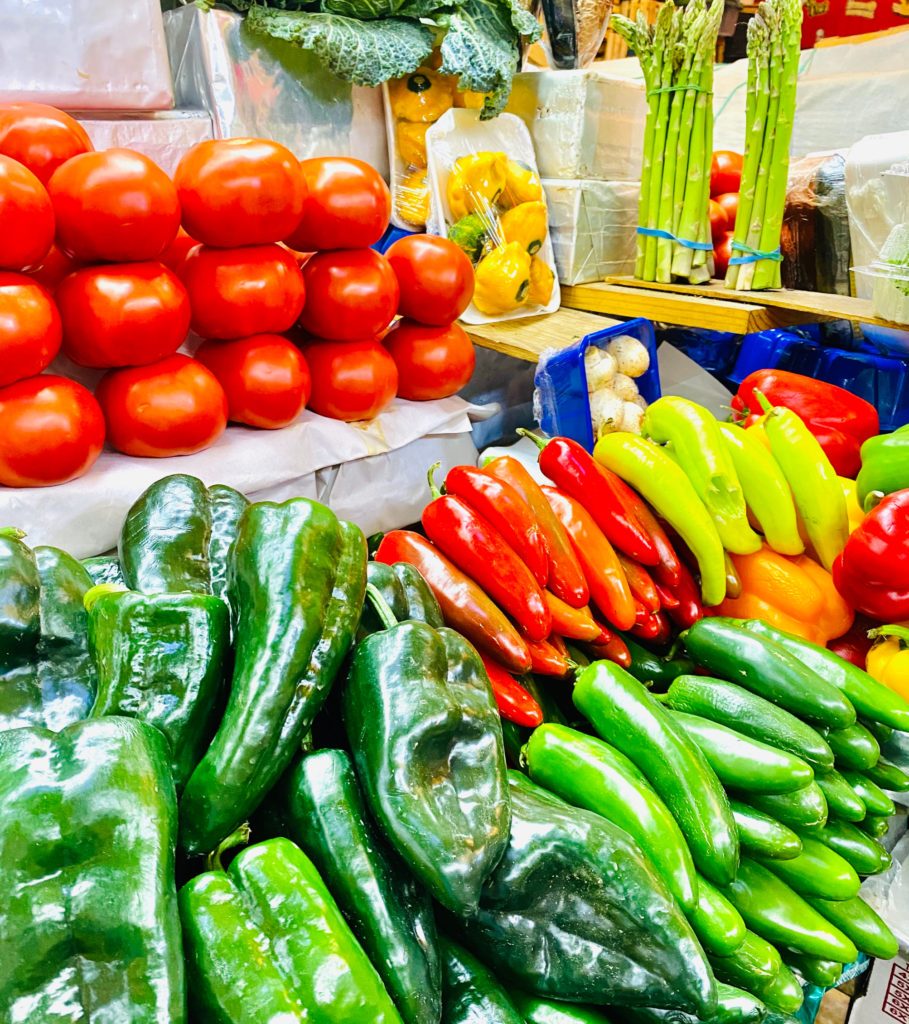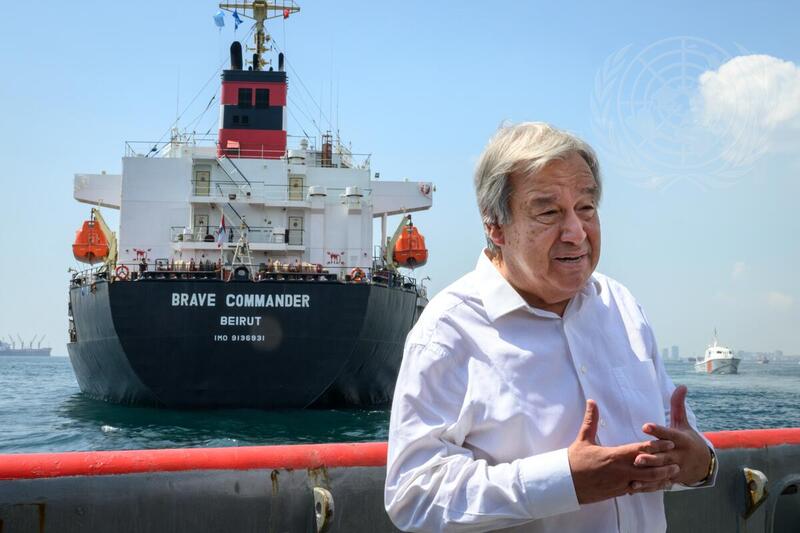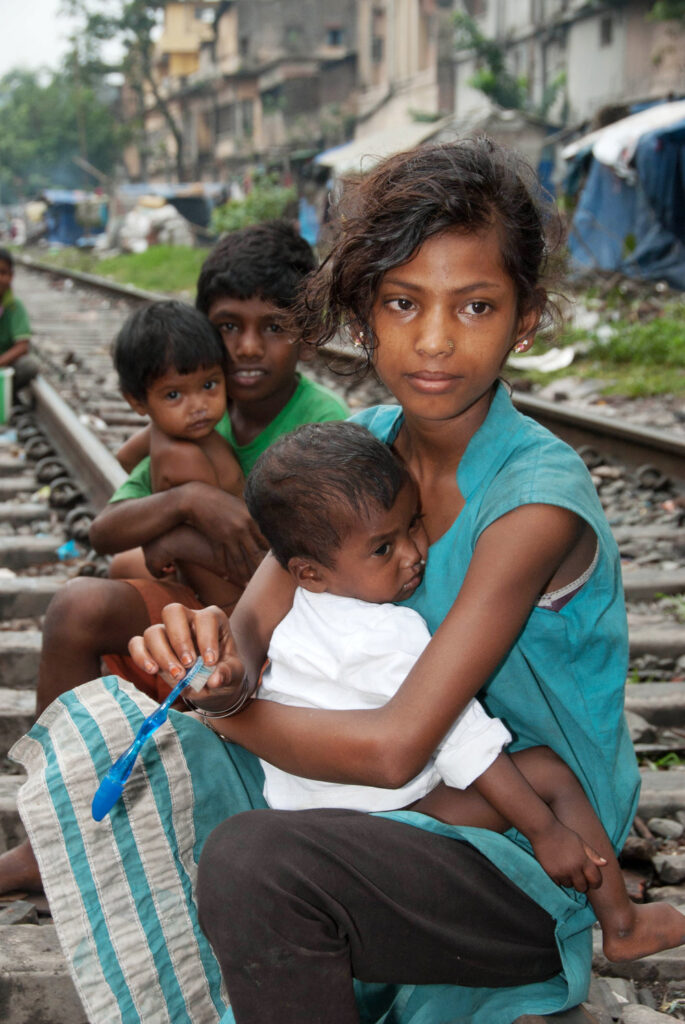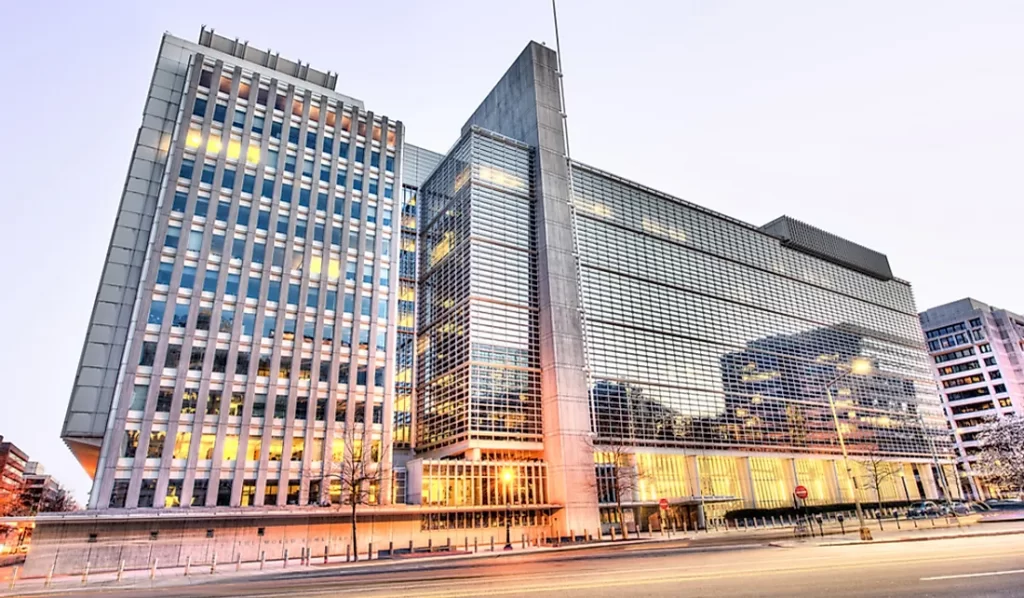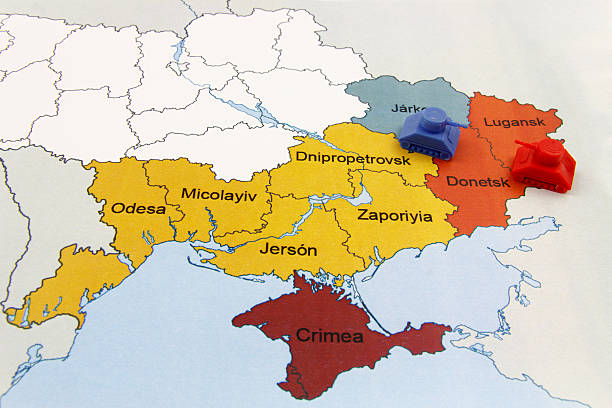U.N. summit adopts plan to protect one-third of earth’s lands, oceans, coastal areas, inland waters
In landmark U.N. Biodiversity Agreement, nations decided to protect 30 per cent of Earth’s lands, oceans, coastal areas, inland waters; reduce by $500 billion annual harmful government subsidies and cut food waste in half by 2030.
Montreal, December 19 – Nearing the conclusion of a sometimes fractious two-week meeting, nations of the world have agreed on a historic package of measures deemed critical to addressing the dangerous loss of biodiversity and restoring natural ecosystems.
Convened under UN auspices, chaired by China, and hosted by Canada, the 15th Conference of Parties to the UN Convention on Biological Diversity adopted the “Kunming-Montreal Global Biodiversity Framework” (GBF), including four goals and 23 targets for achievement by 2030.
Among the global targets for 2030:
Effective conservation and management of at least 30% of the world’s lands, inland waters, coastal areas and oceans, with emphasis on areas of particular importance for biodiversity and ecosystem functioning and services. The GBF prioritizes ecologically-representative, well-connected and equitably-governed systems of protected areas and other effective area-based conservation, recognizing indigenous and traditional territories and practices. Currently 17 per cent and 10 per cent of the world’s terrestrial and marine areas respectively are under protection.
Have restoration completed or underway on at least 30% of degraded terrestrial, inland waters, and coastal and marine ecosystems; Reduce to near zero the loss of areas of high biodiversity importance, including ecosystems of high ecological integrity; Cut global food waste in half and significantly reduce overconsumption and waste generation; Reduce by half both excess nutrients and the overall risk posed by pesticides and highly hazardous chemicals.
Progressively phase out or reform by 2030 subsidies that harm biodiversity by at least $500 billion per year, while scaling up positive incentives for biodiversity’s conservation and sustainable use; Mobilize by 2030 at least $200 billion per year in domestic and international biodiversity-related funding from all sources – public and private.
Raise international financial flows from developed to developing countries, in particular least developed countries, small island developing States, and countries with economies in transition, to at least US$ 20 billion per year by 2025, and to at least US$ 30 billion per year by 2030; Prevent the introduction of priority invasive alien species, and reduce by at least half the introduction and establishment of other known or potential invasive alien species, and eradicate or control invasive alien species on islands and other priority sites; Require large and transnational companies and financial institutions to monitor, assess, and transparently disclose their risks, dependencies and impacts on biodiversity through their operations, supply and value chains and portfolios
Warns the GBF: “Without such action, there will be a further acceleration in the global rate of species extinction, which is already at least tens to hundreds of times higher than it has averaged over the past 10 million years.”
The framework’s four overarching global goals:
GOAL A – The integrity, connectivity and resilience of all ecosystems are maintained, enhanced, or restored, substantially increasing the area of natural ecosystems by 2050;
Human induced extinction of known threatened species is halted, and, by 2050, extinction rate and risk of all species are reduced tenfold, and the abundance of native wild species is increased to healthy and resilient levels; The genetic diversity within populations of wild and domesticated species, is maintained, safeguarding their adaptive potential.
GOAL B – Biodiversity is sustainably used and managed and nature’s contributions to people, including ecosystem functions and services, are valued, maintained and enhanced, with those currently in decline being restored, supporting the achievement of sustainable development, for the benefit of present and future generations by 2050.
GOAL C – The monetary and non-monetary benefits from the utilization of genetic resources, and digital sequence information on genetic resources, and of traditional knowledge associated with genetic resources, as applicable, are shared fairly and equitably, including, as appropriate with indigenous peoples and local communities, and substantially increased by 2050, while ensuring traditional knowledge associated with genetic resources is appropriately protected, thereby contributing to the conservation and sustainable use of biodiversity, in accordance with internationally agreed access and benefit-sharing instruments.
GOAL D – Adequate means of implementation, including financial resources, capacity-building, technical and scientific cooperation, and access to and transfer of technology to fully implement the Kunmin-Montreal global biodiversity framework are secured and equitably accessible to all Parties, especially developing countries, in particular the least developed countries and small island developing States, as well as countries with economies in transition, progressively closing the biodiversity finance gap of $700 billion per year, and aligning financial flows with the Kunmin-Montreal Global Biodiversity Framework and the 2050 Vision for Biodiversity.
Held at Montreal’s Palais des Congrès Dec. 7-19, representatives of 188 governments on site (95% of all 196 Parties to the UN CBD, as well as two non-Parties – the United States and The Vatican), finalized and approved measures to arrest the ongoing loss of terrestrial and marine biodiversity and set humanity in the direction of a sustainable relationship with nature, with clear indicators to measure progress.
In addition to the GBF, the meeting approved a series of related agreements on its implementation, including planning, monitoring, reporting and review; resource mobilization; helping nations to build their capacity to meet the obligations; and digital sequence information on genetic resources.
Digital sequence information on genetic resources – a dominant topic at COP15 – has many commercial and non-commercial applications, including pharmaceutical product development, improved crop breeding, taxonomy, and the monitoring of invasive species.
COP15 delegates agreed to establish within the GBF a multilateral fund for the equitable sharing of benefits between providers and users of DSI, to be finalized at COP16 in Türkiye in 2024.
The agreement also obligates countries to monitor and report every five years or less on a large set of “headline” and other indicators related to progress against the GBF’s goals and targets. Headline indicators include the percent of land and seas effective conserved, the number of companies disclosing their impacts and dependencies on biodiversity, and many others. The CBD will combine national information submitted by late February 2026 and late June 2029 into global trend and progress reports.
* * * *
Emphasized throughout the approved documents are the needs to foster the full and effective contributions of women, persons of diverse gender identities, youth, indigenous peoples and local communities, civil society organizations, the private and financial sectors, and stakeholders from all other sectors. Also emphasized: the need for a “whole-of-government and whole-of-society approach” to implementing the GBF.
Kunming-Montreal Global Biodiversity Framework: 23 targets
TARGET 1 – Ensure that all areas are under participatory integrated biodiversity inclusive spatial planning and/or effective management processes addressing land and sea use change, to bring the loss of areas of high biodiversity importance, including ecosystems of high ecological integrity, close to zero by 2030, while respecting the rights of indigenous peoples and local communities,
TARGET 2 – Ensure that by 2030 at least 30 per cent of areas of degraded terrestrial, inland water, and coastal and marine ecosystems are under effective restoration, in order to enhance biodiversity and ecosystem functions and services, ecological integrity and connectivity.
TARGET 3 – Ensure and enable that by 2030 at least 30 per cent of terrestrial, inland water, and coastal and marine areas, especially areas of particular importance for biodiversity and ecosystem functions and services, are effectively conserved and managed through ecologically representative, well-connected and equitably governed systems of protected areas and other effective area-based conservation measures, recognizing indigenous and traditional territories, where applicable, and integrated into wider landscapes, seascapes and the ocean, while ensuring that any sustainable use, where appropriate in such areas, is fully consistent with conservation outcomes, recognizing and respecting the rights of indigenous peoples and local communities including over their traditional territories,
TARGET 4 – Ensure urgent management actions, to halt human induced extinction of known threatened species and for the recovery and conservation of species, in particular threatened species, to significantly reduce extinction risk, as well as to maintain and restore the genetic diversity within and between populations of native, wild and domesticated species to maintain their adaptive potential, including through in situ and ex situ conservation and sustainable management practices, and effectively manage human-wildlife interactions to minimize human-wildlife conflict for coexistence.
TARGET 5 – Ensure that the use, harvesting and trade of wild species is sustainable, safe and legal, preventing overexploitation, minimizing impacts on non-target species and ecosystems, and reducing the risk of pathogen spill-over, applying the ecosystem approach, while respecting and protecting customary sustainable use by indigenous peoples and local communities.
TARGET 6 – Eliminate, minimize, reduce and or mitigate the impacts of invasive alien species on biodiversity and ecosystem services by identifying and managing pathways of the introduction of alien species, preventing the introduction and establishment of priority invasive alien species, reducing the rates of introduction and establishment of other known or potential invasive alien species by at least 50 per cent, by 2030, eradicating or controlling invasive alien species especially in priority sites, such as islands .
TARGET 7 – Reduce pollution risks and the negative impact of pollution from all sources, by 2030, to levels that are not harmful to biodiversity and ecosystem functions and services, considering cumulative effects, including: reducing excess nutrients lost to the environment by at least half including through more efficient nutrient cycling and use; reducing the overall risk from pesticides and highly hazardous chemicals by at least half including through integrated pest management, based on science, taking into account food security and livelihoods; and also preventing, reducing, and working towards eliminating plastic pollution.
TARGET 8 – Minimize the impact of climate change and ocean acidification on biodiversity and increase its resilience through mitigation, adaptation, and disaster risk reduction actions, including through nature-based solution and/or ecosystem-based approaches, while minimizing negative and fostering positive impacts of climate action on biodiversity.
TARGET 9 – Ensure that the management and use of wild species are sustainable, thereby providing social, economic and environmental benefits for people, especially those in vulnerable situations and those most dependent on biodiversity, including through sustainable biodiversity-based activities, products and services that enhance biodiversity, and protecting and encouraging customary sustainable use by indigenous peoples and local communities.
TARGET 10 – Ensure that areas under agriculture, aquaculture, fisheries and forestry are managed sustainably, in particular through the sustainable use of biodiversity, including through a substantial increase of the application of biodiversity friendly practices, such as sustainable intensification, agroecological and other innovative approaches contributing to the resilience and long-term efficiency and productivity of these production systems and to food security, conserving and restoring biodiversity and maintaining nature’s contributions to people, including ecosystem functions and services.
TARGET 11 – Restore, maintain and enhance nature’s contributions to people, including ecosystem functions and services, such as regulation of air, water, and climate, soil health, pollination and reduction of disease risk, as well as protection from natural hazards and disasters, through nature-based solutions and ecosystem-based approaches for the benefit of all people and nature.
TARGET 12 – Significantly increase the area and quality and connectivity of, access to, and benefits from green and blue spaces in urban and densely populated areas sustainably, by mainstreaming the conservation and sustainable use of biodiversity, and ensure biodiversity-inclusive urban planning, enhancing native biodiversity, ecological connectivity and integrity, and improving human health and well-being and connection to nature and contributing to inclusive and sustainable urbanization and the provision of ecosystem functions and services.
TARGET 13 – Take effective legal, policy, administrative and capacity-building measures at all levels, as appropriate, to ensure the fair and equitable sharing of benefits that arise from the utilization of genetic resources and from digital sequence information on genetic resources, as well as traditional knowledge associated with genetic resources, and facilitating appropriate access to genetic resources, and by 2030 facilitating a significant increase of the benefits shared, in accordance with applicable international access and benefit-sharing instruments.
TARGET 14 – Ensure the full integration of biodiversity and its multiple values into policies, regulations, planning and development processes, poverty eradication strategies, strategic environmental assessments, environmental impact assessments and, as appropriate, national accounting, within and across all levels of government and across all sectors, in particular those with significant impacts on biodiversity, progressively aligning all relevant public and private activities, fiscal and financial flows with the goals and targets of this framework.
TARGET 15 – Take legal, administrative or policy measures to encourage and enable business, and in particular to ensure that large and transnational companies and financial institutions:
(a) Regularly monitor, assess, and transparently disclose their risks, dependencies and impacts on biodiversity including with requirements for all large as well as transnational companies and financial institutions along their operations, supply and value chains and portfolios; (b) Provide information needed to consumers to promote sustainable consumption patterns; (c) Report on compliance with access and benefit-sharing regulations and measures, as applicable; in order to progressively reduce negative impacts on biodiversity, increase positive impacts, reduce biodiversity-related risks to business and financial institutions, and promote actions to ensure sustainable patterns of production.
TARGET 16 – Ensure that people are encouraged and enabled to make sustainable consumption choices including by establishing supportive policy, legislative or regulatory frameworks, improving education and access to relevant and accurate information and alternatives, and by 2030, reduce the global footprint of consumption in an equitable manner, halve global food waste, significantly reduce overconsumption and substantially reduce waste generation, in order for all people to live well in harmony with Mother Earth.
TARGET 17 – Establish, strengthen capacity for, and implement in all countries in biosafety measures as set out in Article 8(g) of the Convention on Biological Diversity and measures for the handling of biotechnology and distribution of its benefits as set out in Article 19 of the Convention.
TARGET 18 – Identify by 2025, and eliminate, phase out or reform incentives, including subsidies harmful for biodiversity, in a proportionate, just, fair, effective and equitable way, while substantially and progressively reducing them by at least 500 billion United States dollars per year by 2030, starting with the most harmful incentives, and scale up positive incentives for the conservation and sustainable use of biodiversity.
TARGET 19 – Substantially and progressively increase the level of financial resources from all sources, in an effective, timely and easily accessible manner, including domestic, international, public and private resources, in accordance with Article 20 of the Convention, to implement national biodiversity strategies and action plans, by 2030 mobilizing at least 200 billion United States dollars per year, including by:
(a) Increasing total biodiversity related international financial resources from developed countries, including official development assistance, and from countries that voluntarily assume obligations of developed country Parties, to developing countries, in particular the least developed countries and small island developing States, as well as countries with economies in transition, to at least US$ 20 billion per year by 2025, and to at least US$ 30 billion per year by 2030;
(b) Significantly increasing domestic resource mobilization, facilitated by the preparation and implementation of national biodiversity finance plans or similar instruments according to national needs, priorities and circumstances
(c) Leveraging private finance, promoting blended finance, implementing strategies for raising new and additional resources, and encouraging the private sector to invest in biodiversity, including through impact funds and other instruments;
(d) Stimulating innovative schemes such as payment for ecosystem services, green bonds, biodiversity offsets and credits, benefit-sharing mechanisms, with environmental and social safeguards
(e) Optimizing co-benefits and synergies of finance targeting the biodiversity and climate crises,
(f) Enhancing the role of collective actions, including by indigenous peoples and local communities, Mother Earth centric actions and non-market-based approaches including community based natural resource management and civil society cooperation and solidarity aimed at the conservation of biodiversity
(g) Enhancing the effectiveness, efficiency and transparency of resource provision and use;
TARGET 20 – Strengthen capacity-building and development, access to and transfer of technology, and promote development of and access to innovation and technical and scientific cooperation, including through South- South, North-South and triangular cooperation, to meet the needs for effective implementation, particularly in developing countries, fostering joint technology development and joint scientific research programmes for the conservation and sustainable use of biodiversity and strengthening scientific research and monitoring capacities, commensurate with the ambition of the goals and targets of the framework.
TARGET 21 – Ensure that the best available data, information and knowledge, are accessible to decision makers, practitioners and the public to guide effective and equitable governance, integrated and participatory management of biodiversity, and to strengthen communication, awareness-raising, education, monitoring, research and knowledge management and, also in this context, traditional knowledge, innovations, practices and technologies of indigenous peoples and local communities should only be accessed with their free, prior and informed consent20, in accordance with national legislation.
TARGET 22 – Ensure the full, equitable, inclusive, effective and gender-responsive representation and participation in decision-making, and access to justice and information related to biodiversity by indigenous peoples and local communities, respecting their cultures and their rights over lands, territories, resources, and traditional knowledge, as well as by women and girls, children and youth, and persons with disabilities and ensure the full protection of environmental human rights defenders.
TARGET 23 – Ensure gender equality in the implementation of the framework through a gender-responsive approach where all women and girls have equal opportunity and capacity to contribute to the three objectives of the Convention, including by recognizing their equal rights and access to land and natural resources and their full, equitable, meaningful and informed participation and leadership at all levels of action, engagement, policy and decision-making related to biodiversity.
* * * * *
CONTACT: Terry Collins & Assoc. | www.tca.tc | @TerryCollinsTC | LinkedIn.com/in/terrycollins | In the News 2021: https://adobe.ly/3FRijQA, Toronto, M6R1L8 Canada
United Nations correspondent journalists – United Nations correspondent journalists – United Nations correspondent journalists – United Nations journalism articles – United Nations journalism articles – United Nations journalism articles – United Nations News – United Nations News – United Nations News





